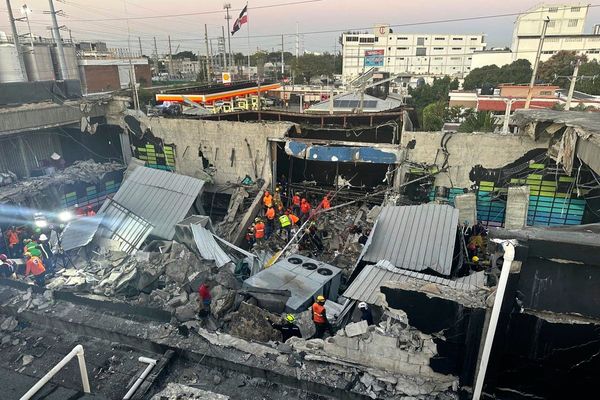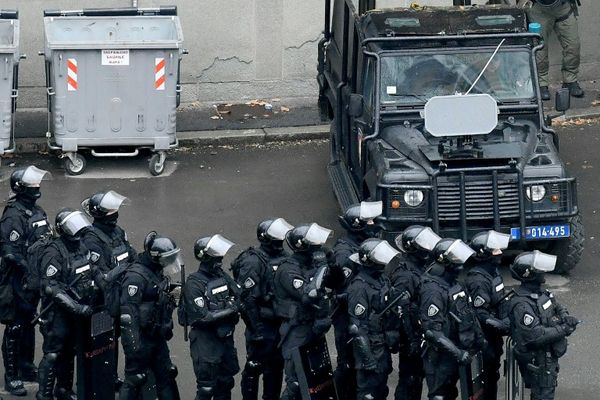
They are the last England side left at this year’s Rugby League World Cup and for one of the stars of the hosts’ wheelchair side, Friday’s final against France has been a decade in the making.
Sebastien Bechara vividly remembers the moment his life changed forever. Bechara was born in Nottingham but moved to France at the age of nine, where he became a keen sportsman and a motorcycle enthusiast. But at the age of 18, tragedy struck. “Me and my dad were huge fans of motorcycles and I got my first one at 18, but I had a really bad accident in the south of France,” he says.
“They kept trying to fix my leg, but after a month they decided to amputate it because it just wasn’t fixable. So there I was, an amputee at the age of 18.” Laid in a hospital bed in the summer of 2012 with no idea what his future would hold, Bechara was struck by what he saw on television. “I was watching the London Paralympics and from then on I didn’t even care about what had happened to my leg – I just knew that in four years I wanted to be there representing my country.”
Bechara set his sights on becoming a Paralympic swimmer until a chance meeting with Cyril Torres, who was the captain of France’s wheelchair rugby side as the sport was beginning to establish itself. “I never doubted I’d find a sport that suited me, but when I discovered wheelchair rugby it was incredible. The sport has played a massive part in shaping my life and I’ve met fellow amputees who have helped me on my own journey.”
And now, despite spending the majority of his life in France and playing for Catalans Dragons’ wheelchair side, Bechara is one win away from fulfilling his dream of helping England win a Rugby League World Cup. The opposition is France in a meeting of the two best teams in the world, just as it was five years ago when the French won 38-34 in a thrilling final in Perpignan. This year, however, the circumstances are markedly different.

Not only are England on home soil but wheelchair rugby league has become a mainstream phenomenon thanks to the platform the World Cup has provided, and the high-intensity, thoroughly entertaining nature of the sport. Manchester Central will be a 5,000 sellout on Friday evening, and Bechara understands the pressure that comes with being the last England team left after the men and women were eliminated in their respective semi-finals.
“I’m so in love with this sport and seeing it explode on to the mainstream now. I feel like having played it for so long, I’m a proud parent watching the sport grow up and enjoy success,” Bechara smiles. “It’s incredible to see the love and respect the sport is getting in this country now. We’re getting stopped by people in the streets, it’s crazy. People can see what a great sport this is, but we’ve got a job to do on Friday night.
“I haven’t forgotten what happened five years ago. We were winning until the final stages and perhaps should have won. I think I’ve watched the game back 150 times. I’m so gutted for the men and the women getting knocked out, but all English hopes now rest with us. We can take that pressure and run with it because to have the country behind you, being live on the BBC when just a few years ago we were playing in empty sports halls and nobody cared … these are the moments you dream of.”
Bechara is also aware that when England take to the court on Friday, there will be young men and women watching who are coming to terms with their own personal trauma, just as he was a decade ago. But now, it is wheelchair rugby league which can serve as the inspiration.
“I haven’t thought about that before, but I hope that’s true,” he says. “I’m sure there’s people going through difficult times. People coming to terms with being amputees, or disabled. And I hope those people can see that it doesn’t mean life is finished. It can be the start of a brilliant new journey.”







